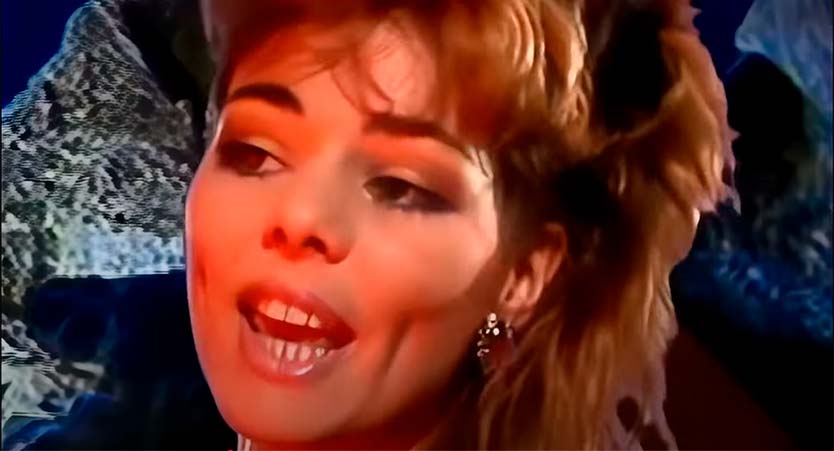Sandra – “(I’ll Never Be) Maria Magdalena”:
Synth-Pop Defiance Wrapped in Euro-Disco Elegance
Released on 15 July 1985, “(I’ll Never Be) Maria Magdalena” was the debut solo single that launched Sandra to pan-European stardom. A shimmering slice of synth-pop infused with Euro-disco polish, the song’s catchy melody, electronic textures, and empowered message positioned her as one of the defining voices of 1980s European pop.
It wasn’t just her breakthrough — it was a calling card.
From Arabesque to Altitude
Before her solo career, Sandra gained popularity as a member of the female disco trio Arabesque, which found success particularly in Japan and Eastern Europe. But it was her partnership with producer Michael Cretu — who would later become her husband — that redefined her sound and image.
With “(I’ll Never Be) Maria Magdalena,” Cretu crafted a sleek, modern production built on layered synthesizers, drum machine pulses, and Sandra’s breathy, emotionally precise vocals. Co-written with Hubert Kemmler, Markus Löhr, and Richard Palmer-James, the track signaled a new kind of pop heroine: mysterious, self-possessed, and sonically irresistible.
Lyrical Autonomy in a Church of Pop
Referencing the biblical Mary Magdalene, often interpreted (and misunderstood) as a symbol of repentance and submission, the song turns that archetype inside out. The refrain — “I’ll never be Maria Magdalena” — is a statement of independence, agency, and emotional refusal.
Sandra’s delivery is cool but assertive — rejecting expectations, quietly demanding respect. It’s feminist pop with a chiffon veil.
Chart Alchemy Across Europe
Initially slow to gain radio play in Germany, the track broke first in Greece, where DJs embraced its sultry confidence. Tourists brought it back home, creating a groundswell that rippled across the continent.
The song reached No. 1 in Germany, Austria, Switzerland, Sweden, Norway, Finland, Greece, and the Netherlands. It hit No. 2 in Italy, No. 3 in Belgium and Denmark, and No. 5 in France. In the UK, it had a modest impact, peaking at No. 91. Despite limited U.S. exposure, its European success was undeniable, with Sandra becoming a top-charting female pop act of the decade.
Visuals and Versions
The original 1985 video, directed by Mike Leckebusch, features Sandra performing in a studio setup with a live band — stylized, simple, and confident. The song later received remixes in 1993 and 1999, keeping its mystique alive in club and nostalgia circuits. Elements were also reworked into her 2012 track “Kings & Queens.”
Legacy: A Star Is Formed in Synth
“(I’ll Never Be) Maria Magdalena” remains Sandra’s signature song — a perennial fixture on ’80s revival playlists, retro festivals, and European pop retrospectives. Its combination of seductive melody and lyrical defiance still resonates, a reminder that pop can be both catchy and quietly revolutionary.
It wasn’t just a breakout hit. It was a declaration in eyeliner and echo — and the opening chapter in one of synth-pop’s most quietly captivating careers.

